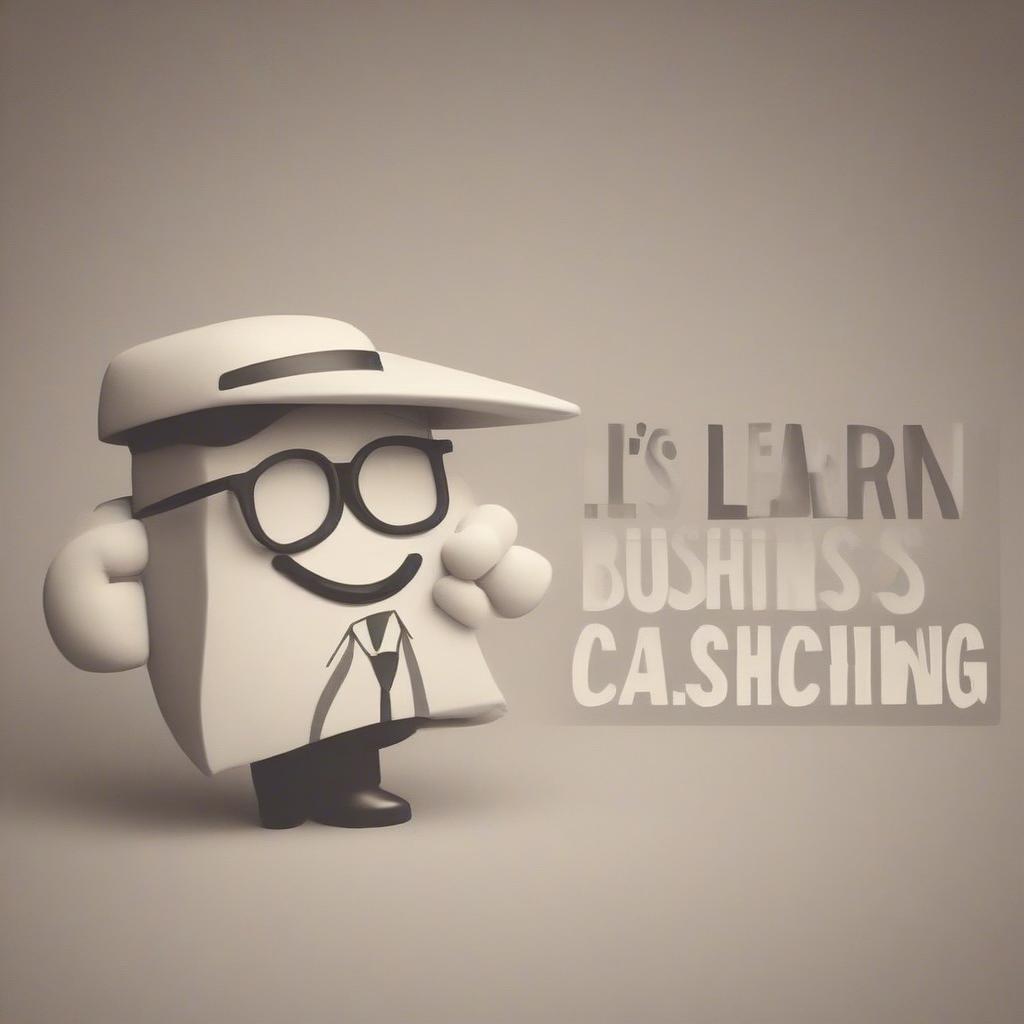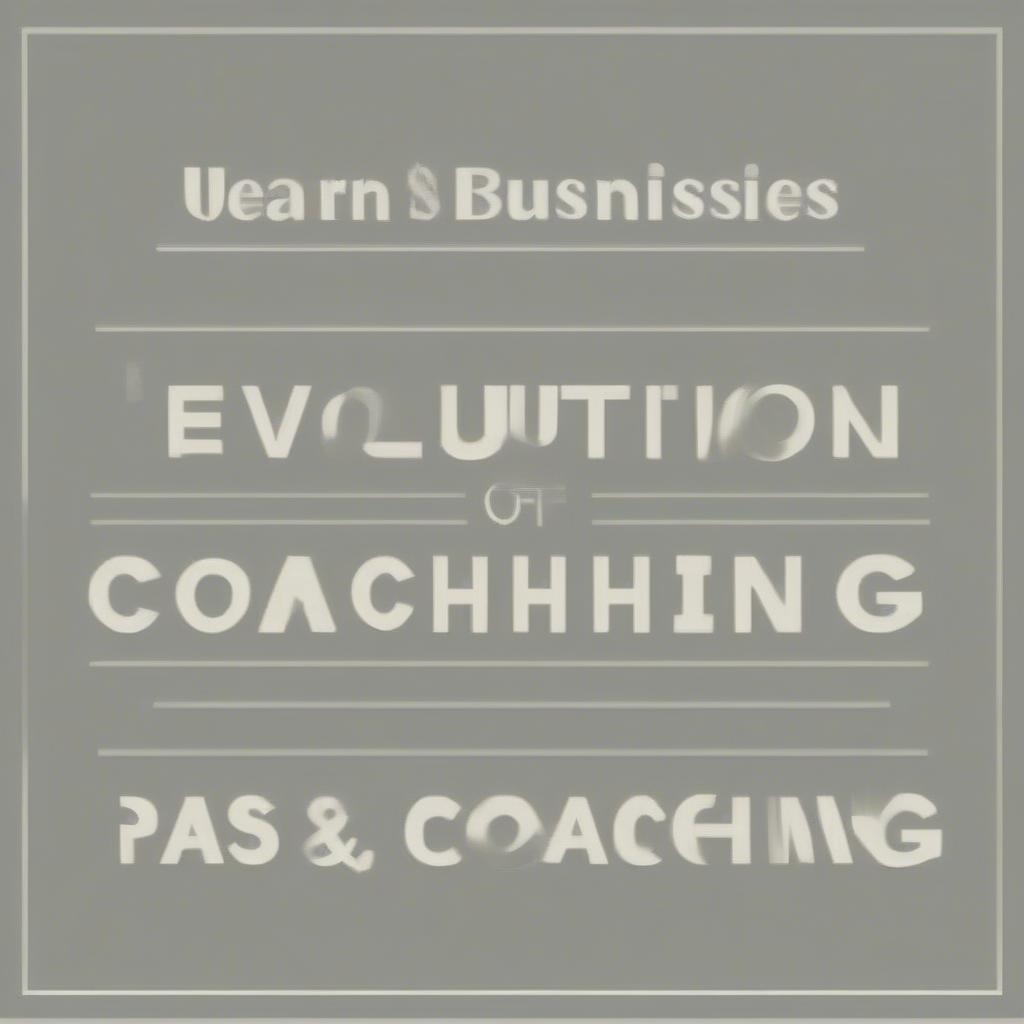
Understanding the World of Career Coaching: Why It Matters
Career coaching isn’t just about finding a job; it’s about unlocking potential, aligning passions with purpose, and building fulfilling professional lives. It’s a dynamic field where you, as a career coach, can guide individuals through pivotal career moments. Think of yourself as a professional navigator, helping clients chart their course toward career success.
The Core of Career Coaching
At its heart, career coaching is a partnership. It’s a collaborative process where you empower your clients to:
- Clarify their goals: Identifying what they truly want from their careers.
- Recognize their strengths: Pinpointing their unique skills and talents.
- Overcome obstacles: Addressing challenges and building resilience.
- Develop actionable plans: Creating roadmaps for achieving their aspirations.
This isn’t about giving all the answers; it’s about asking the right questions, fostering self-awareness, and providing the tools clients need to thrive.
Why the Demand for Career Coaches is So High
The job market is constantly shifting, and many people find themselves feeling lost or uncertain about their professional paths. This is where you come in. Here are a few reasons why the demand for career coaching is soaring:
- Rapid technological advancements: New industries and job roles emerge constantly, making it difficult to keep up.
- Increased job insecurity: Layoffs and company restructuring lead many to seek help in navigating career transitions.
- Desire for purpose and fulfillment: People are increasingly seeking work that aligns with their values and passions.
- Competitive job market: Standing out in a crowded job market requires strategy and guidance.
- Greater emphasis on personal development: People are more invested in their personal growth and recognize the value of external support.
By understanding these underlying trends, you’ll see how essential career coaching has become for those striving for career success.
The First Steps: Defining Your Niche and Expertise
Before launching into the world of career coaching, you need to understand what makes you unique and how you can best serve your clients. Finding your niche is a crucial step in establishing a successful practice.
Identifying Your Ideal Client
Who do you want to help? Consider:
- Industry experience: Do you have a strong background in a specific industry (e.g., tech, healthcare, finance)?
- Career stage: Do you prefer working with recent graduates, mid-career professionals, or those nearing retirement?
- Specialized needs: Are you passionate about helping specific groups (e.g., creatives, entrepreneurs, stay-at-home parents returning to the workforce)?
- Skills and passions: What are you naturally good at? What excites you about helping people with their careers?
The clearer you are about your ideal client, the easier it will be to tailor your services and attract the right individuals. This clarity also makes your marketing more effective. For example, specializing in “Mid-career Tech Transitions” will draw in people seeking those services, while a broader approach may be lost in the general market.
Building Your Core Competencies
Being a successful career coach requires a blend of skills and knowledge. While natural empathy and communication are great starting points, here are specific areas to develop:
- Active listening: Truly hearing and understanding your client’s needs and concerns.
- Powerful questioning: Asking questions that challenge assumptions and uncover insights.
- Motivational interviewing: Guiding clients toward positive change through self-discovery.
- Resume writing and job search strategies: Staying updated on current best practices.
- Networking skills and strategies: Teaching clients how to build valuable connections.
- Understanding the labor market: Keeping track of trends, salaries, and industry demands.
- Personal branding: Helping clients craft their unique professional story.
- Goal setting and action planning: Turning aspirations into concrete steps.
- Feedback and accountability: Supporting clients on their journey while providing honest perspectives.
Continuous learning is key. Invest in workshops, courses, and mentorship to hone these coaching tips and to become the best career coach you can be.
Setting Up Your Career Coaching Practice: The Practicalities
Once you’ve defined your niche and built your skills, it’s time to create your business. This involves setting up the practical aspects of your coaching practice.
Defining Your Coaching Packages and Pricing
Consider offering a range of packages to cater to different client needs and budgets. Think about what level of service each package includes. Some common offerings include:
- Introductory sessions: A single session to assess client needs and establish a working relationship.
- Basic career coaching package: Focuses on resume and cover letter reviews, interview preparation, and job search basics.
- Comprehensive career transformation package: Includes in-depth exploration of goals and values, personal branding strategies, and ongoing support.
- Specialized packages: Target specific needs, such as salary negotiation, leadership development, or career transitions.
When setting your prices, consider factors like:
- Your experience and expertise: More experience usually warrants higher rates.
- Market rates: Research what other coaches in your niche are charging.
- The value you provide: Focus on the transformative outcomes you help clients achieve.
- Your operating costs: Factor in expenses like marketing, software, and professional development.
Don’t be afraid to experiment with different pricing models to see what works best for you and your clients.
Choosing the Right Tools and Technology
Having the right tools can streamline your practice and enhance your client experience. Consider these essential resources:
- Scheduling software: Tools like Calendly, Acuity Scheduling, or Google Calendar allow clients to book appointments easily.
- Video conferencing software: Zoom, Google Meet, or Skype facilitate virtual coaching sessions.
- CRM (Customer Relationship Management) software: Helps manage client data, track progress, and streamline communication. HubSpot or Zoho are some options.
- Project management software: Tools like Asana or Trello can keep your client projects and tasks organized.
- Payment processing software: Stripe or PayPal simplifies payment collections.
- Document sharing and collaboration platforms: Google Drive or Dropbox allow for seamless document sharing and collaborative editing.
Marketing Your Coaching Services Effectively
Attracting clients requires a well-defined marketing strategy. Here are some key areas to focus on:
- Create a professional website: Your website is your online storefront. Make it user-friendly, informative, and visually appealing.
- Use content marketing: Share helpful blog posts, articles, and videos on career coaching tips and career success to showcase your expertise.
- Engage on social media: Use platforms like LinkedIn, Instagram, and Facebook to connect with potential clients and share valuable insights.
- Network strategically: Attend industry events and connect with potential referral partners.
- Offer free introductory sessions or workshops: Give people a taste of your coaching style and value.
- Gather testimonials and case studies: Social proof is a powerful tool for building trust and credibility.
- SEO Optimization: Use keywords like “career coaching, coaching tips, career success” within your website content, marketing materials, and social media posts to increase visibility in search engine results.
The Coaching Process: Guiding Your Clients to Career Success
The core of your practice lies in your ability to effectively guide clients toward their career success. A structured and thoughtful coaching process is essential for achieving desired outcomes.
Initial Consultation and Discovery Phase
Your first interaction with a new client should focus on establishing a rapport and understanding their unique needs. This phase involves:
- Active listening: Let them share their story and express their concerns.
- Asking powerful questions: Uncover their goals, values, strengths, and challenges.
- Clarifying expectations: Explain your coaching process, approach, and packages.
- Establishing a coaching agreement: Set clear goals, timelines, and expectations for both parties.
The initial consultation is critical for creating a foundation of trust and mutual understanding.
Goal Setting and Action Planning
Once you have a good understanding of your client’s needs, it’s time to collaboratively set clear, achievable goals. This phase includes:
- Using the SMART framework: Ensure that goals are Specific, Measurable, Achievable, Relevant, and Time-bound.
- Breaking down large goals into smaller steps: This makes the process less overwhelming and more manageable.
- Creating action plans with clear deadlines and responsibilities: Outline concrete actions and keep clients accountable.
- Identifying potential obstacles and developing strategies to overcome them: Anticipating hurdles ensures that clients are prepared for challenges.
Supporting the Client’s Journey: Techniques and Tools
During the coaching process, you’ll use various coaching tips and techniques. Here are a few to consider:
- Strength-based coaching: Focus on identifying and leveraging client’s natural talents and strengths.
- Values exploration: Help clients connect with their core values and align their career choices with their principles.
- Visualization techniques: Encourage clients to visualize their ideal future to build motivation and clarity.
- Reflective exercises: Use journaling prompts and self-assessment tools to enhance self-awareness.
- Role-playing and mock interviews: Prepare clients for real-life job scenarios.
- Networking strategies and guidance: Teach clients how to connect with potential employers or mentors.
- Resume and cover letter review with detailed, constructive feedback: Provide current, relevant advice.
- Utilizing career assessment tools: Employ tools like Myers-Briggs, DISC, or StrengthsFinder to gain deeper insights into client’s aptitudes.
- Providing resources, templates, and checklists: Offer practical support to help clients progress.
- Offering Accountability and follow-up: Keep them focused on their goals and provide ongoing support.
Remember to tailor your approach to each client’s specific needs and preferences.
Celebrating Success and Supporting Future Growth
As your clients progress, it’s crucial to celebrate milestones and successes. This helps to reinforce positive behaviors and create momentum. Additionally:
- Offer guidance on continuing professional development: Help clients identify areas for future growth and learning.
- Provide ongoing support and resources as needed: Maintain a relationship with your clients and become a long-term resource for them.
- Encourage clients to network and support others: Promote a community of growth and collaboration.
- Seek feedback and continuously improve: Learn from your client interactions and adapt your services to better meet their needs.
Learn Business: Your Partner in Building a Thriving Coaching Practice
At Learn Business, we understand the challenges of starting and growing a business, including a career coaching practice. We’re here to support you every step of the way, providing guidance, resources, and templates tailored to your needs.
How Learn Business Supports Career Coaches
We offer a range of services designed to help you build and scale a thriving career coaching business:
- Business plan templates: Craft a clear, strategic roadmap for your practice.
- Financial management tools: Track your income, expenses, and profitability.
- Marketing templates and guides: Create effective marketing materials and social media content.
- Client intake forms and contracts: Streamline your onboarding process and ensure professional clarity.
- Project management tools and templates: Organize your tasks and client projects efficiently.
- Legal and compliance resources: Ensure your business operates in accordance with regulations.
- Access to a community of like-minded entrepreneurs: Network and collaborate with other coaches and professionals.
- Guidance on leveraging technology Simplify workflows and automate key tasks for efficiency
Our templates are meticulously crafted, ensuring they are both user-friendly and comprehensive. We understand that every business is unique, so our templates are easily customizable to fit your specific needs.
Streamlining Your Operations for Maximum Efficiency
With Learn Business, you can focus on what you do best – coaching and guiding your clients towards career success. We handle the intricacies of business operations so you can dedicate your time and energy to your clients. Our resources help you:
- Automate client communication: Save time and effort with automated emails, reminders, and updates.
- Simplify scheduling and booking: Reduce administrative burden and streamline appointment management.
- Manage client data effectively: Keep all client information in one secure, organized location.
- Track your progress and measure your impact: Use analytics to understand how your business is performing and identify areas for improvement.
By leveraging our templates and resources, you can establish a solid foundation for growth and achieve sustainable success in the competitive world of career coaching.
Final Thoughts: Embrace the Journey
Breaking into career coaching is an exciting and rewarding endeavor. While it requires dedication, hard work, and a commitment to continuous learning, the impact you’ll have on your client’s lives makes it all worthwhile. By following the steps outlined in this comprehensive guide and utilizing resources like Learn Business, you’ll have the tools and knowledge you need to not only launch a successful coaching practice but also to empower your clients to achieve their full potential and enjoy lasting career success. Embrace the journey, believe in yourself, and remember that you hold the power to transform lives, one coaching session at a time.



Leave a Reply